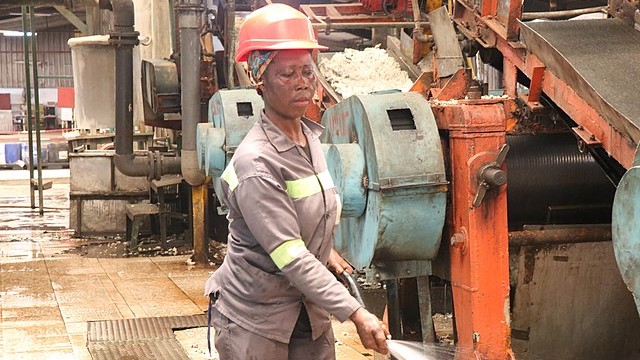In a nation long tethered to the export of raw commodities, a new industrial vision is beginning to take hold. Cameroon is investing heavily in purpose-built industrial zones designed to anchor manufacturing at home, create tens of thousands of jobs, and strengthen its position within regional and global supply chains. The projects, spread across strategic coastal and inland locations, reflect a coordinated push to diversify an economy still shaped by its resource base.
On the southern Atlantic coast, the Port Authority of Kribi has committed to an expansive undertaking within its deep-water harbor. A $900 million integrated industrial zone, covering 1,500 hectares, is set to rise in partnership with four international firms: Bolloré Africa Logistics (now under Mediterranean Shipping Company), Tangier Mediterranean Special Agency, International Container Terminal Services Inc., and China Harbour Engineering Company. Officials estimate the initiative will generate 50,000 direct jobs, positioning Kribi as a major hub for processing and transshipment along the Gulf of Guinea.
Some 300 kilometers to the northwest, in Douala, a parallel effort is underway along the banks of the Dibamba River. Arise Integrated Industrial Platforms has pledged CFA230 billion to develop a 500-hectare complex in Missolé I. The plan allocates 350 hectares to an industrial-port zone, 100 hectares to a logistics hub, and 50 hectares for residential infrastructure—an interconnected ecosystem intended to link seamlessly with Douala’s port operations and the national hinterland. Projections suggest as many as half a million direct and indirect jobs could emerge from the project’s full build-out.
In the eastern heartlands, the emphasis shifts from shipping lanes to timber. Two sites—Doumé-Bonis and Mandjo Kano—have been designated exclusively for wood processing by the state-owned Mission for the Development and Management of Industrial Zones in Cameroon. Together spanning 224 hectares, these zones aim to advance value-added production in the forestry sector, targeting an estimated 55,000 direct jobs while reducing the export of unprocessed logs.
The push is not limited to infrastructure. Interim Minister of Mines, Industry and Technological Development Fuh Calistus Gentry has announced the adoption of a “one municipality, one industry” policy, designed to spur localized manufacturing, stimulate small-scale industrial clusters, and distribute economic gains more evenly across the country.
All of these initiatives are bound to the objectives of Cameroon’s National Development Strategy 2030, which calls for accelerated industrialization, expanded employment, and greater economic self-reliance. While challenges remain—from financing to infrastructure readiness—the scale and scope of these projects signal a decisive shift in the country’s industrial trajectory.
Sources:
- Journal du Cameroun, “Kribi Integrated Industrial Zone Agreement Signed.”
- Business in Cameroon, “Industrial Zone Projects in Douala and Kribi.”
- Cameroon Tribune, “Government Launches ‘One Municipality, One Industry’ Policy.”
- Africa Supply Chain, “Cameroon’s National Development Strategy 2030.”

